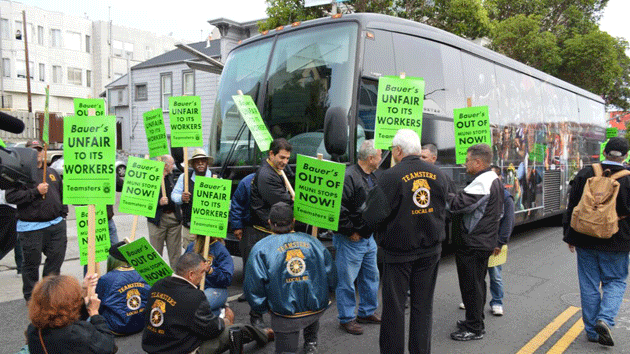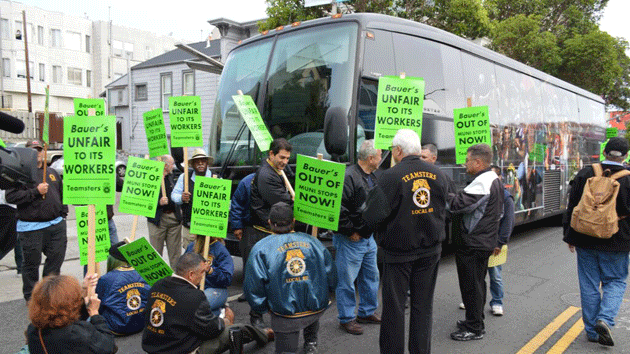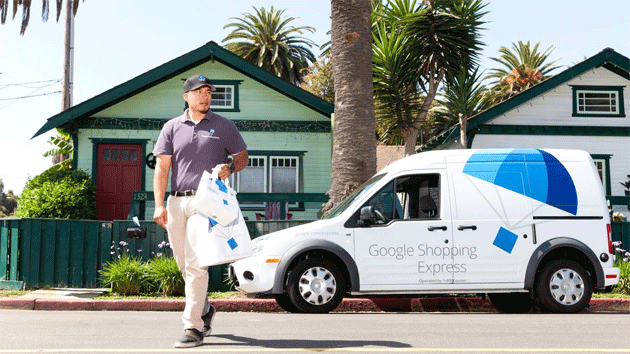
Teamsters block a Bauer's IT shuttle in San Francisco.Phil Ybaralozza/ Teamsters Local 853
Citing a history of disregard for traffic laws and acrimonious labor disputes, San Francisco’s Municipal Transportation Agency has declined to grant tech shuttle operator Bauer’s IT a permit to use public bus stops under the city’s controversial Commuter Shuttle Program. Bauer’s IT is one of San Francisco’s largest tech bus operators, accounting for 10 percent of the city’s commuter shuttle pickups. Bauer’s IT clients include major Bay Area tech companies such as Twitter, Yelp, Salesforce, and Cisco.
According to a “notice of permit denial” sent from the SFMTA to Bauer’s yesterday, the company repeatedly broke the law by sending large buses down “weight-restricted streets” and stopping at locations not designated for private buses. It also failed to inform the city of ongoing labor disputes with the International Brotherhood of the Teamsters, whose complaints of illegal union busting practices at the company are being heard by the National Labor Relations Board. The Commuter Shuttle Program requires participating companies to maintain “labor harmony.”
In 2013, tech shuttles, a.k.a. “Google buses,” became potent symbols of inequality and gentrification in the Bay Area after it emerged that the posh private vehicles were illegally using public bus stops to pick up workers. The following year, the city launched a pilot program that allowed the companies to use the stops legally for a nominal fee. That program becomes permanent next month, but requires participating companies to reapply for permits. Bauer’s IT could not be reached for comment.
“The SFMTA is enforcing what the City and County of San Francisco is famous for: Recognizing employees’ right to be represented and right to and fair wages and benefits,” said Rome Aloise, the director of Teamsters Joint Council 7, which represents drivers in Northern California. “Bauer’s seems to be just disregarding all of that.”
Does this mean the Twitterati will be tweeting from BART like the rest of us? Not exactly. Bauer’s IT has 15 days to file an appeal, and can then continue to use its stops until the city makes a final decision.
















